Holiday listening: music to soundtrack your summer break
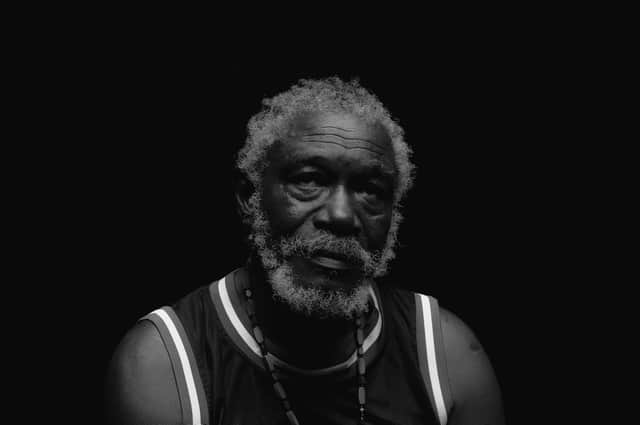

POP
Horace Andy: Midnight Rocker (On-U Sound Records)
Cherished reggae icon Horace Andy is one of Jamaica’s most soulful voices, nicknamed Sleepy for his easy style, which is captured in splendid spirit on new album Midnight Rocker by dub producer Adrian Sherwood, backed by his On U Sound band including Tackhead’s Skip McDonald and Doug Wimbish. The mournful wheeze of melodica, gentle reggae sashay and cautionary lyric of Easy Money sets the bittersweet tone. A sage message of prudence runs through the album. The cost-of-living blues number Materialist guards against the temptations of peacock displays. Watch Over Them is a reggae prayer against the seduction of violence and Today is Right Here beseeches us to live in the moment. FS
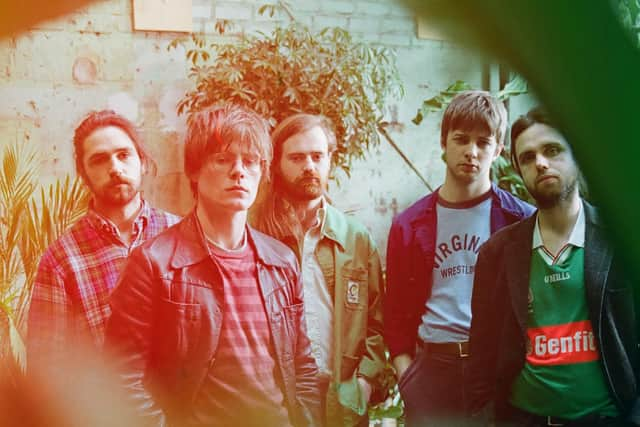

Fontaines D.C.: Skinty Fia (Partisan) Distinctive Dublin band Fontaines D.C. have made their name with their own musical vernacular, blending a taut punk sound, smart socio-political poetry, cultural literacy and heat-seeking ambition which recalls a nascent U2. Their superb third album Skinty Fia looks back at their hometown from their new base in London with expanded musical horizons. Jackie Down the Line is indie rock shot through with rich, twanging guitar lines and frontman Grian Chatten at his most tuneful and dangerous. There is menace in the soused swagger and keening guitar riff of the James Joyce-referencing Bloomsday, while the loose-limbed Roman Holiday is almost dreamy and The Couple Across the Way is a soulful lament on a failing relationship, accompanied only by the wheeze of accordion. FS
Spiritualized: Everything Was Beautiful (Bella Union)
Advertisement
Hide AdAdvertisement
Hide AdSpiritualized know a thing or two about cleansing catharsis through melancholy music, but there is levity in their ninth album, Everything Was Beautiful, even if it is titled after Kurt Vonnegut’s Slaughterhouse-Five. The pandemic lockdown was a familiar state for introverted mainman Jason Pierce. What has emerged, however, is an open and sociable celebration of an album, featuring 30 musicians recorded in 11 studios. Pearce immediately hits us with the outright upbeat positivity of Always Together With You, a pop gospel number with rousing orchestration and acid guitar. Psychedelic Krautrock number Best Thing You Never Had (The D Song) features exultant bursts of brass, and there are even echoes of Paul Simon on the accessible cosmic country of Crazy. Fans seeking a bittersweet fix can feast on Let It Bleed (For Iggy), which recalls the tender pop of Lou Reed at his most vulnerable, arranged with the widescreen ambition of Brian Wilson. FS
Angel Olsen: Big Time (Jagjaguwar)
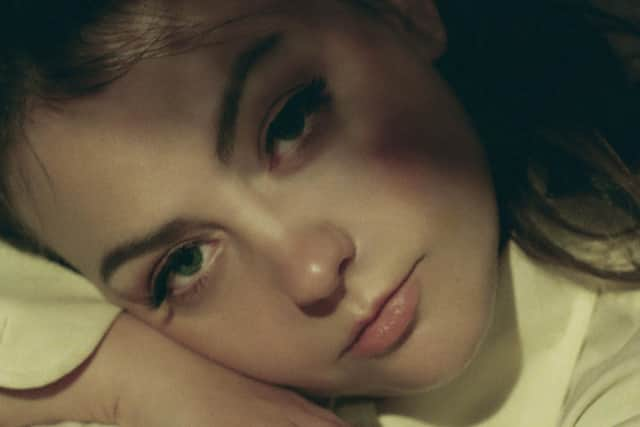

Angel Olsen’s latest album was forged against a personal backdrop of highs and lows – the high of new love and being able to come out to her parents, the low of losing both her dad and her mum within a matter of months. Big Time is another work of ravishing symphonic country pop, produced by her usual wingman Jonathan Wilson in such a way that her rich alto is always the star instrument. She harmonises beautifully with herself adding soaring soprano to the mix on All the Good Times, utilises the sob in her voice on This Is How It Works’ appeal for support and understanding and emits a cry from the heart on gothic pop number Go Home with its desire to “go back to small things”. FS
C Duncan: Alluvium (Bella Union)
This fourth album of rapturous chamber pop from Helensburgh-based composer C Duncan features appropriately elemental songs called Air and Earth, the former rooted in 70s pop balladry with its graceful strings and sighing sentiments. The Wedding Song is a gorgeous, blushingly romantic acoustic paean written for his brother’s wedding in lieu of a best man’s speech, while We Have A Lifetime, inspired by his philosophical grandmother, would make an exquisite first waltz at a wedding. Elsewhere, Duncan toys coquettishly with a couple of outright synth pop tracks, the playful I Tried and Heaven, whose chiming dreaminess recalls those immaculate Trevor Horn productions for Dollar. Even the unexpected guitar solo in Bell Toll is ravishing and the results are all the more stunning for having been performed, recorded and produced at home. FS
FOLK & JAZZ
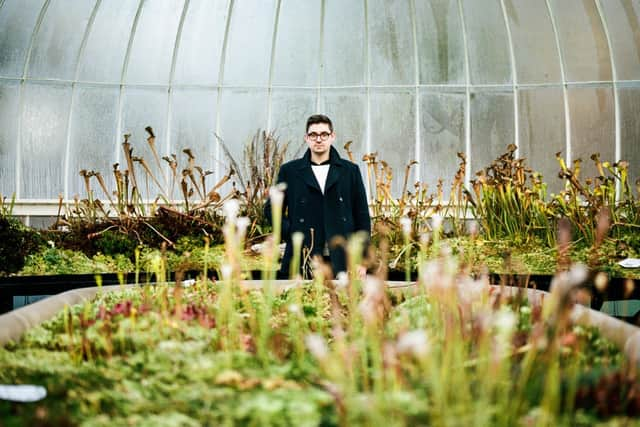

Fergus McCreadie: Forest Floor (Edition Records)
Award-winning pianist-composer Fergus McCreadie and his trio with double-bassist David Bowden and drummer Stephen Henderson go from strength to strength, manifesting McCreadie’s deftly organic infusion of Scots folk elements into highly articulate piano jazz. Their superb third album opens with the exhilaratingly headlong rush of Law Hill, before showcasing McCreadie’s penchant for a beguiling melody hook in The Unfurrowed Field, including a conversational bass solo and a joyous concluding drum spree and piano cascades. Gamelan-like keyboard chimes evoke the serenely drifting Morning Moon and there’s stillness, too, in the rolling murmurs that herald the wistful melody of the title track. White Water, meanwhile, swirls over a hypnotically repetitive bass line and hissing cymbals, while the closing Glade ushers us gently off in a Satie-esque meander. JG
Hannah Rarity: To Have You Near (Own Label) Hannah Rarity’s second album responds eloquently to difficult times, laced through with longing, regret but also hope. Its mainly contemporary material is considerately accompanied by the likes of guitarist-producer Innes White, pianist John Lowrie and drummer Scott Mackay, while Boo Hewerdine contributes discreet backing vocals as well as one of his own compositions. Rarity’s own song, My Friend, reflects poignantly on “one hell of a year”, while she does full justice to Gerry O’Beirne’s gorgeous west-of-Ireland ramble Shades of Gloria, escorted by a string section led by Seonaid Aitken. She dwells lovingly on Hewardine’s I’m Not Going Anywhere and lifts Take It With Me out of the growly warmth of Tom Waits’s original, rendering it with impeccably lingering clarity. Memorable standouts are her peerless cover of the old Stephen Foster chestnut, Hard Times, and her closer, the wistful entreaty of Julie Matthews’ Comes the Hour. JG
Trish Clowes: A View with a Room (Greenleaf Music)
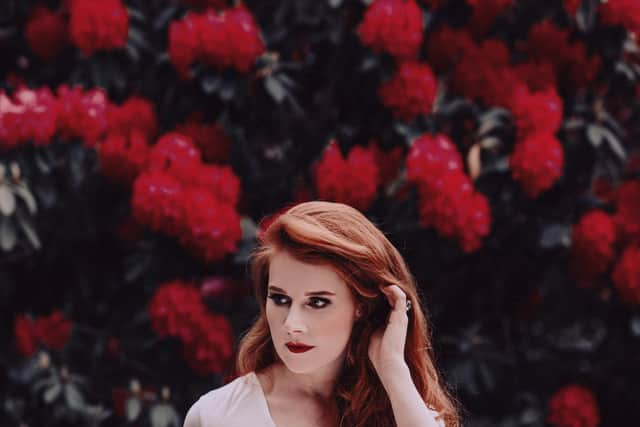

Saxophonist Trish Clowes and her band My Iris – guitarist Chris Montague, drummer James Maddren and Ross Stanley on piano, Fender Rhodes and Hammond organ – pull off a beguilingly inventive mix of shadow and luminosity to this album, its lyrical warmth tempered by certain shady spookiness. The perky groove of the title track quickly showcases the individual talents of the band, while The Ness is a surprisingly edgy response to images of the East Neuk of Fife, opening out to a sublime conclusion with echoing guitar, murmuring soprano sax, lapping waves and seabirds. There’s lyricism, too, in Morning Song, with its glittering piano, contemplative tenor sax and guitar and unhurriedly precise drumming. JG
Seonaid Aitken Ensemble: Chasing Sakura (Own Label)
Swing violinist and singer Seonaid Aitken composed this richly textured, jazz, folk and classically inflected suite following a serious accident. Her ensemble of violinist Katrina Lee, Patsy Reid on viola, cellist Alice Allen, double-bassist Emma Smith and Helena Kay on tenor saxophone and flute generate a dazzling sense of transcendence as Aitken, who has lived in Japan, is inspired by the cherry blossom she witnesses as she recovers in a Glasgow transformed by spring. The opening Awakening establishes the mood, with Aitken’s solo violin and Kay’s tenor sax sounding against a flurry of strings. Elsewhere, there’s the swingy waltz of Beauty and Wonder, lithe fiddle and sax dialogue in The Walk and vocalising from Aitken in the dreamy Spring Song, while avian flute and a Japanese mode colour the elegant glide of Sakura Snowstorm. JG
Advertisement
Hide AdAdvertisement
Hide AdStrathspey Queens: Alice Allen & Patsy Reid play James Scott Skinner (Ardgowan Records)
James Scott Skinner, the celebrated “Strathspey King”, left an immense legacy of fiddle music. Two highly regarded players, cellist Alice Allen (cello was Skinner’s original instrument) and fiddler Patsy Reid, reprise his repertoire to mark the centenary of the last 78rpm recording he made before his death in 1927. They fairly skip through the opening trio of Skinner’s favourite pipe marches and go on to reinvigorate some much-loved strathspeys. There’s stately slow strathspey playing in such classics as Glengrant and Tulchan Lodge, unabashed sentimentality in the hoary old Home Sweet Home, while showpieces include the eccentric pizzicato of The Parrot and the briskly skittering Banks hornpipe. Every set displays insight, smeddum and palpable affection. JG
CLASSICAL
From Brighton to Brooklyn (Chandos) The musical chemistry between husband and wife duo Elena Urioste (violin) and Tom Poster (piano) is a match made in heaven. In From Brighton to Brooklyn they celebrate their respective cultural roots with a programme that skips back and forth across the Atlantic. There’s an explosive opening in Detroit-born Paul Schoenfeld’s Four Souvenirs, the opening Samba and closing Square Dance oozing sensual virtuosity, immediately calmed by the reflective Englishness of Frank Bridge. American female composers Florence Price and Amy Beach are worth their presence – the former’s Elfentanz a salon-esque complement to the dignified European Romanticism of the latter’s 3 Compositions Op 40. There’s a rumbustious Ukelele Serenade by Aaron Copland, a moody Ballade by Samuel Coleridge-Taylor, and the duo complete their deliciously flavoursome programme with three characterful pieces from Britten’s Suite Op 6 and the comforting warmth of Bridge’s Heart’s Ease. KW
Eden: Joyce DiDonato (Erato) Joyce DiDonato’s latest album opens on the eeriest of notes - a version of Charles Ives’ The Unanswered Question that replaces the solo trumpet with the American mezzo soprano’s mystical, wordless vocalisation. It sets the scene for a programme intended as a reset after Covid, or as she puts it, “a vivid musical exploration through the centuries to remember and to create a new Eden from within.” But my goodness, how the Ukraine catastrophe suddenly throws new light on that. Nonetheless, a glowing optimism shines through these performances with the SCO’s Russian conductor Maxim Emelyanychev and the original instrumental ensemble Il Pomo d’Oro. As well as a warmly-spun premiere recording of Rachel Portman’s The First Morning Of The World, the repertoire ranges from ebullient Renaissance and irresistible Handel to Wagner and Copland. KW
Castalian Quartet: Between Two Worlds (Delphian) Music for String Quartets can, without respite, amount to quite a heavy emotional load. Whether that thought was instrumental in guiding the excellent Castalian Quartet towards such a beautifully balanced sequence - heavyweight Beethoven and Adès softened, indeed contextualised, by exquisite miniatures by Lassus and Dowland - is neither here nor there. The end result is as refreshing as it is profound. There’s a distinctive quality to this ensemble’s playing that fuses personality and oneness. Beethoven’s late A minor Quartet, Op 132, with the sublime Heiliger Dankgesang at its spiritual core, plays a powerful centrifugal role, countered immediately by the mutable effervescence of Thomas Adès’ The Four Quartets. Either side, the meditative Renaissance transcriptions offer precious moments of psychological preparation and reflection. KW
Stuart MacRae: Chamber Music (Delphian) The timing of this selective survey of Stuart MacRae’s chamber music by the Hebrides Ensemble is instructive. Something happened to the now 46-year-old composer’s music over the past decade, coinciding with his fruitful ventures into opera, that witnessed a perceptible shift in style from exploratory introspection to emotive insight and confident linguistic maturity. There’s a sense of that distinction here, in examples stretching from the gestural simplicity of Tol-Pedn of 1999, in which MacRae himself plays percussion, to the effervescent wonderment of Ursa Minor, written for this recording and inspired by nighttime walks during lockdown. Rich, responsive performances do full justice to these and other works. The improvisatory musings of two solo piano works played by James Willshire are both wistful and unpretentious, while there’s a powerful, operatic charge to I Am Prometheus and Parable, featuring tenor Joshua Elliott and baritone Marcus Farnsworth respectively. KW
Rachmaninov: Piano Sonata No 1 / Moments Musicaux (Hyperion) If anything defines Steven Osborne’s distinctive brand of pianism it’s the mesmerising totality of his awesome technique and penetrating musicianship. It is nothing short of all-consuming in this powerful, authoritative new recording, which opens with the monumentalism of the Piano Sonata No 1 before giving way to sundry miniatures and finally the Op 16 set of Moments musicaux. The sonata performance – a vast, Faustian symphonic discourse embodying the gurgling turbulence of the opening movement, the lyrical intensity of the Lento and the tumultuous struggle and victory of the finale – is mind-blowing perfection with an encyclopedic rage of sonorities, Lisztian in spirit. The Moments Musicaux are more Chopinesque in their intimate honesty, though Osborne observes with breathtaking detail their rich expressive possibilities. KW